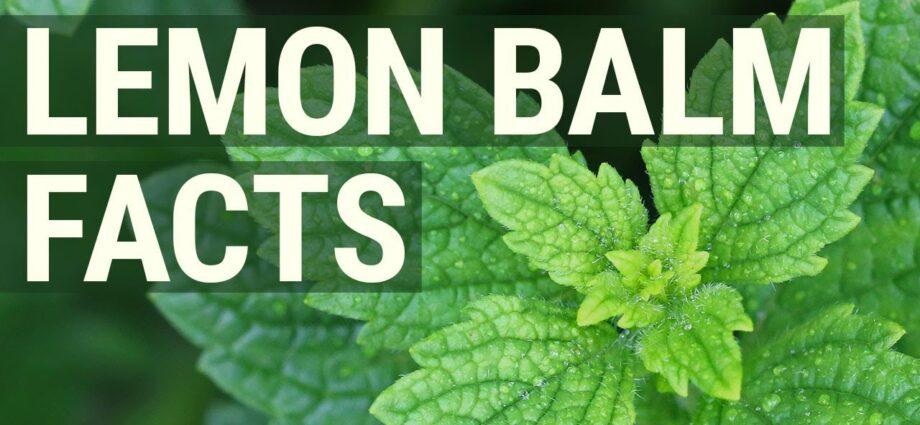Contents
Lemon balm: medicinal and culinary properties. Video
Lemon balm is one of the most demanded medicinal plants. It boasts not only medicinal but also culinary properties. In the kitchen, “lemon mint” is a truly indispensable seasoning.
Lemon balm – the best herbal remedy for the heart
Melissa is a genus of perennial herbaceous plants found in Europe, Central Asia, North America and Africa. Melissa officinalis, popularly known as “lemon mint”, is the most popular of the herb. Its name comes from the Greek word Μέλισσα – “honey bee”, and it is called lemon for its rich citrus scent.
The entire aerial part of the plant is used as food. Lemon balm has a lot of useful properties. It contains 0,33% essential oil, which contains such essential human substances as ascorbic, caffeic and ursolic acids, coumarins (indirect anticoagulants), as well as tannins, iron, calcium, magnesium, selenium. Lemon mint has been used as a medicine since time immemorial. The first mentions of it can be found in the works of ancient healers. In the early Middle Ages, compresses made from crushed lemon balm leaves were used to heal insect bites. The famous Avicenna spoke very positively about melissa. The Persian scientist believed that it positively affects the work of the heart and helps with melancholy.
Later, Paracelsus declared lemon mint the most beneficial plant for the heart of all that there is on earth.
Today, lemon balm decoctions and tinctures are used not only for the treatment of cardiovascular diseases, but also for rheumatism, stomach atony, nerve diseases and as a sedative. Lemon balm tea is recommended for those who are regularly exposed to serious mental stress. It is generally accepted that it helps concentration and improves memory. Lemon mint also has contraindications: it should be used with caution in people suffering from ulcers and arterial hypotension.
Applications and cultivation
Lemon balm oil has found application in the cosmetic and perfume industry. A couple of drops of lemon balm essential oil can be added to relaxation baths. Another area of application of this unique plant is beekeeping. Beekeepers cultivate lemon balm, as it is a valuable honey plant and can produce an excellent harvest for 20 years. In cooking, lemon balm is used not only in the preparation of herbal drinks, but also as a seasoning. It is included in the list of ingredients in many salads, soups, main courses, pickles, etc.
Interestingly, if you rub the skin with lemon balm, you will not be bitten by bees.
Growing lemon balm will not be difficult even for a novice gardener. Mint can be easily grown from seeds. She is demanding on the soil, but rather unpretentious in care. Sowing can be done in spring, when stable warm weather is established, or in autumn “before winter”. The soil should be nutritious, thoroughly loosened, fertilized with humus. The seeds do not need to be buried too deep, it is enough to lightly sprinkle with soil.










